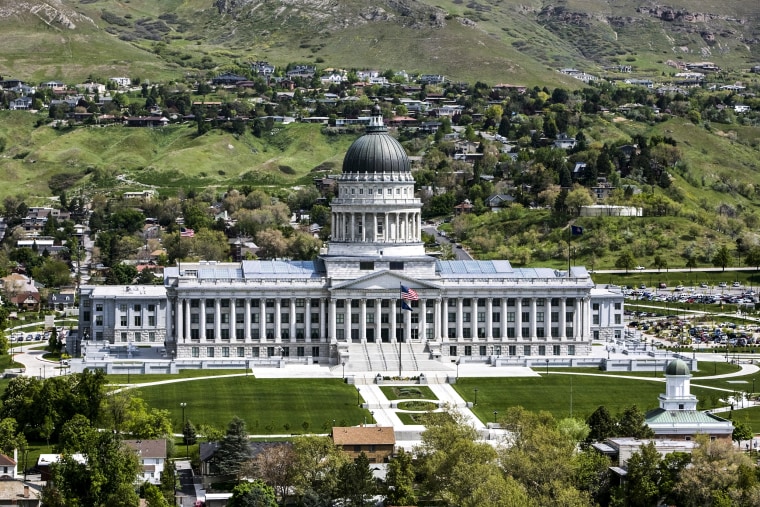Utah lawmakers passed a bill on Friday that would bar transgender people from using bathrooms in schools and government buildings that correspond with their gender identities.
House Bill 257, which is titled “Sex-based Designations for Privacy, Anti-bullying and Women’s Opportunities,” also specifies the state’s legal definition of “male” and “female” is based on a person’s genitalia rather than their gender identity. The bill now heads to the governor’s desk for enactment.
This is the third year in a row that lawmakers in Utah have passed legislation that limits the rights of the state’s trans community.
The bill’s passage also comes less than seven years after the enactment of a similar piece of legislation in North Carolina, HB 2, caused national outrage. While HB 2 triggered a boycott of the state by global corporations, big-name performers and college sports leagues, there has been little fanfare over the Utah bill other than from advocates and LGBTQ people living in the state.
If the bill is enacted, it will be the 13th law in the country to limit trans people’s ability to use public facilities in some capacity, according to the Movement Advancement Project, an LGBTQ research group that has been tracking the bills.
Supporters of the measure argued that the bill is necessary to prevent “predators seeking to harm women” from entering bathrooms and changing facilities under the guise that they are trans women.
“Let’s be clear, sexual assault knows no boundaries. Keeping men from women’s spaces is an appropriate and much needed boundary in Utah and across America,” Utah state Rep. Kera Birkeland, the bill’s lead sponsor, said on X on Thursday. “Nobody is calling out the transgender community for crimes against women.”
Conversely, critics have condemned the bill for singling out the state’s trans community.
Kelley Robinson, president of the Human Rights Campaign, the nation’s largest LGBTQ advocacy group, called the legislation an “invasion into our basic freedoms.”
“No student should be denied access to the bathroom that aligns with who they are,” she said in a statement on Friday. “No one should fear harassment in the most private of settings. Period.”
It is unclear if Republican Gov. Spencer Cox will sign the bill into law. Cox’s office did not immediately respond to a request for comment and the governor has not commented publicly regarding the bill.
In 2022, Cox vetoed legislation that aimed to limit transgender students’ ability to compete on girls sports teams in school. (Subsequently, Utah lawmakers overrode their Republican governor’s veto and the bill became law.) But last year, Cox signed a ban on gender affirming care for minors into law within the first few weeks of the legislative session.
Equality Utah, an LGBTQ advocacy group, said in a statement on X Friday that it successfully fought to include language in the text of HB 257 that would prevent criminal action against minors who go against the law and that it would continue to advocate on behalf of trans youth.
The original bill’s text would have effectively banned transgender people from using public restrooms that match their gender identity at any facility in the state that receives public funding, including hospitals and airports. But the state’s Senate amended the language to limit the scope of the prohibitions to public schools and government-owned facilities, which state House lawmakers overwhelmingly agreed to.
“It’s very clear that right now there are going to be continued and constant political attacks on transgender and nonbinary Utahns,” Aaron Welcher, a spokesperson for the American Civil Liberties Union of Utah, said. “And it’s really unfortunate for all the reasons that we fight for people’s rights and civil liberties, but it is also really unfortunate because many of these people who have been affected over the last three years are youth.”
For more from NBC Out, sign up for our weekly newsletter.

